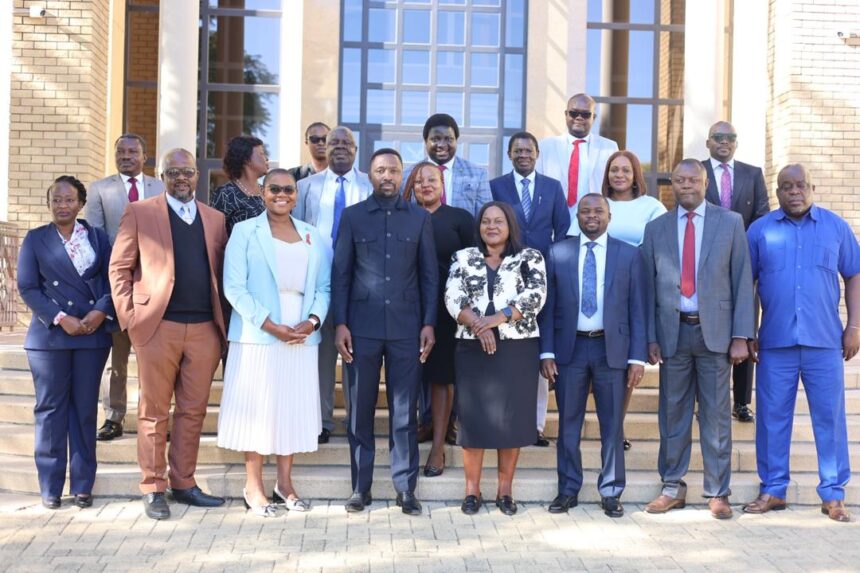Zambia’s Deputy National Assembly Speaker Malungo Chisangano is impressed with the Namibian Parliament’s gender equality achievements.
She is also impressed by the modus operandi used by political parties, particularly the ruling Swapo, to achieve gender equality at the parliamentary level, stating that it is a model worth emulating.
She said what she found more impressive is Swapo’s constitutional provision that allows the use of a zebra list (50/50 representation).
She also acknowledged other quota systems used by other political parties to ensure women’s representation at the parliament level.
“It is impressive to find out that Namibia has more than 50% women in Parliament, of which most of them hold key positions in government, and key positions within their political parties,” she said. Information obtained from Parliament indicates that Namibia’s women representatives in Parliament have increased from five in the first National Assembly (1990-1994) to 48 in the sixth National Assembly (2015-2020).
This year, Namibia reached 50/50 gender equality in the National Assembly.
At the moment, out of 104 Members of Parliament, 52 are male, while 52 are female.
Furthermore, Namibia has maintained its position among the top 10 performers globally in closing its gender gap, according to the World Economic Forum’s Global Gender Gap Report 2024.
The report data shows Namibia in eighth place out of 146 countries, having closed an impressive 80.5% of its gender gap.
Chisangano said although the Zambian constitution attaches importance to valuing women, gender inequality is still a thorn in the flesh.
She highlighted the National Gender Policy and the Gender Equity and Equality Act of 2015 as some of the available legal frameworks to eradicate all forms of discrimination against women and girls.
She was on a weeklong study visit to the National Council last week, together with other members of the Zambia parliamentary committee on privileges and absences.
In an interview with New Era, she revealed that despite constitutional imperatives and government policies aimed at achieving gender equality, Zambian women continue to trail men in a variety of spheres, including employment, land ownership and political leadership.
She added that currently, there are 16 female parliamentarians out of 167 members of parliament, holding only 15% of parliamentary seats and 16% of ministerial positions.
While women in that country make up 86% of the informal labour force, only 13% of firms have female top executives.
“I think our country also needs to adopt gender quotas and reserved seats for us to break through these structural, cultural and other barriers to increase women’s representation in political office,” she said.
She added: “If indeed Zambia is to prosper socially, economically and politically, there is a need for equal representation of both genders in leadership positions to effect change from a balanced point of view, rather than keeping women away, and limiting their political and policymaking contributions”.
She said the two committees had an opportunity to interact as well as exchange knowledge and expertise that will contribute to the strengthening of democratic institutions, and ensuring that members of parliament perform their duties effectively, free from interference, and with the necessary support.



